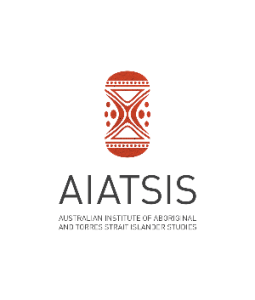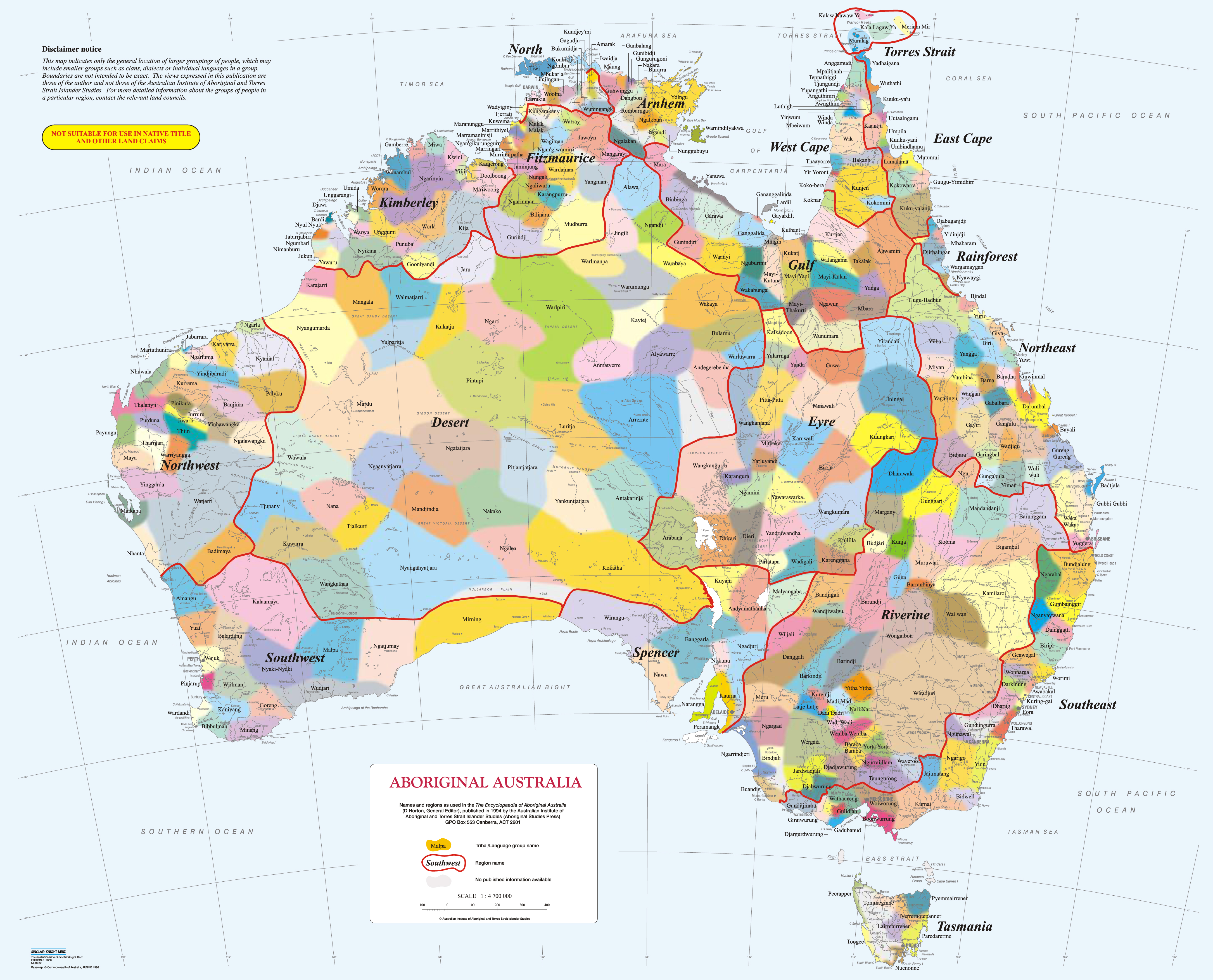
 |
Map of Indigenous Australia |

|
AUSTLANG database is supported by AIATSIS and provides information about Aboriginal & Torres Islander languages & Place names from a number of sources.
The database contains the following information about each Aboriginal and Torres Strait Islander language:
|
The aim of the project is to document the linguistic and cultural knowledge of the remaining few hundred speakers of several language varieties belonging to two language groups in the Victoria River District in Northern Australia. These varieties are Jaminjung, Ngaliwurru and Nungali (members of the Jaminjungan family, one of the Non-Pama-Nyungan language groups) and Gurindji, Ngarinyman, and Bilinarra (belonging to the Ngumpin subgroup of the Pama-Nyungan language family). |
Place Name Resources
Hercus, L. A., & Koch, H. J. (2009). Aboriginal placenames: Naming and re-naming the Australian landscape. Retrieved from: Link | |
|
Hercus, L. A., Hodges, F., & Simpson, J. H. (2009). The land is a map: Placenames of indigenous origin in Australia. Retrieved from: Link | |
|
AIATSIS. (2015). AIATSIS Place Thesaurus. (Also available are the Subject and Language thesauri). Retrieved from: Link |
The Geoscience Australia 'Place Names Search' is the result of the cooperative effort of State, Territory and Commonwealth governments. Search for a place name, geographical feature or select an area on a map.
OZBIB is a bibliography of published works and theses on Aboriginal and Torres Strait Islander languages. OZBIB was compiled by Geraldine Triffitt and Lois Carrington and published in 1999 from the Pacific Linguistics. The supplement to OZBIB was published in 2005 from the Mulini Press. The copyright of OZBIB has been acquired by AIATSIS, and an electronic version of OZBIB is maintained by AIATSIS. AIATSIS wishes to acknowledge Geraldine Triffitt and Lois Carrington for their work on OZBIB.
The AustKin database and website provide access to kinship terminologies and social category systems from published and archival sources for over 607 Australian Aboriginal languages. There are various ways to search and browse through the database
|
"A lot of the way you speak is dictated by how you are related. When outsiders come into Aboriginal communities, there has to be an establishment of relationship. "People won't speak to you unless they know you're in the right kinship category for them to speak to," she said. Dr McConvell said the AustKin site, had the potential to help non-Aboriginal people or organisations in their dealings with Indigenous communities.. |
This site gives a comprehensive and well maintained guide to links and sources for around 80 of Australia's Aboriginal languages, of which around 20 are still strong. About 35% of these resources are produced by Indigenous people. Search can be limited to a State or Region.
All the resources are classified under categories such as Organisations, Dictionaries, Films & videos, Language rights, Academic papers etc. Click on the link ("Click to categories") and a list of categories will be displayed. Click on any category to see resources for that category.

The Living Archive of Aboriginal Languages is a digital archive of endangered literature in Australian Indigenous languages of the Northern Territory. This is a living archive, with connections to the people and communities where the books were created. This will allow for collaborative research work with the Indigenous authorities and communities
